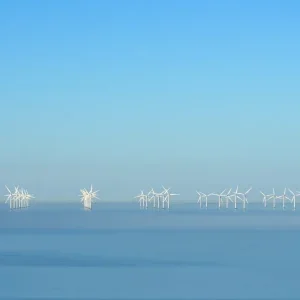This marks a crucial step in the development of Alstom’s tidal power technology, and clearly demonstrates its performance and endurance, as well as its autonomous operation.
On the strength of this success, Alstom has also improved its tidal stream turbine design by introducing the Oceade™ 18-1.4 MW, which has just been chosen along with GDF Suez by the French Government for the pilot farm at Raz Blanchard .
An Alstom team based in Nantes and Bristol and devoted to tidal power is now working on developing the Oceade™ platform and an associated "subsea hub", a seabed interconnection solution that was declared the winner of an earlier call for expressions of interest (CEI).
Trials performed under real-life conditions, at sea and connected to the grid, have shown that Alstom can optimise the use of tidal resources according to the various local conditions (speed of current, depth) and so reduce the cost of electric power.
"Reaching this milestone has demonstrated the experience acquired during the trials performed in Scotland and positions Alstom as a pioneer in tidal power development," said Jacques Jamart, Alstom Senior Vice-President in charge of New Energies. "By proving our ability in this way to produce electricity over the long term and in significant amounts, we are contributing to establishing the credibility which is vital to the emergence of the tidal power sector."
Alstom is continuing to develop the largest portfolio of solutions in the field of renewable energies. The company offers the most complete range of products and integrated systems to generate electricity from hydraulic, onshore and offshore wind, geothermal, biomass and solar sources.






